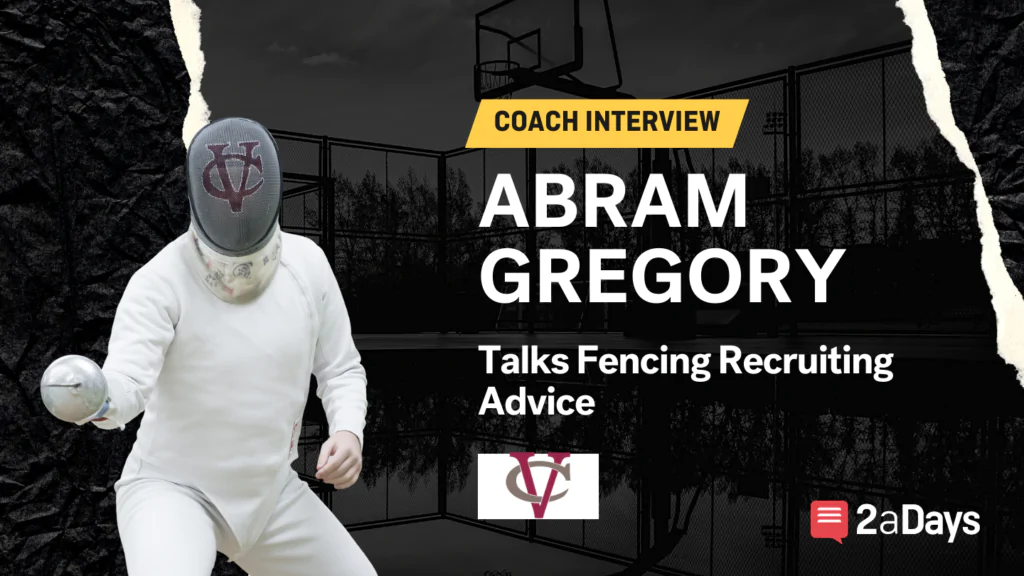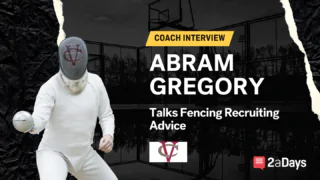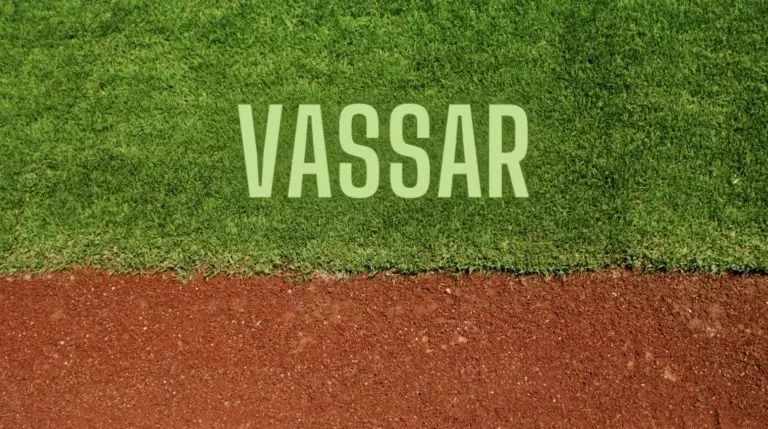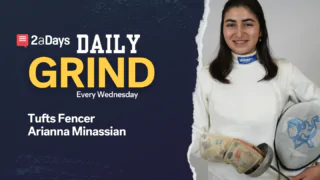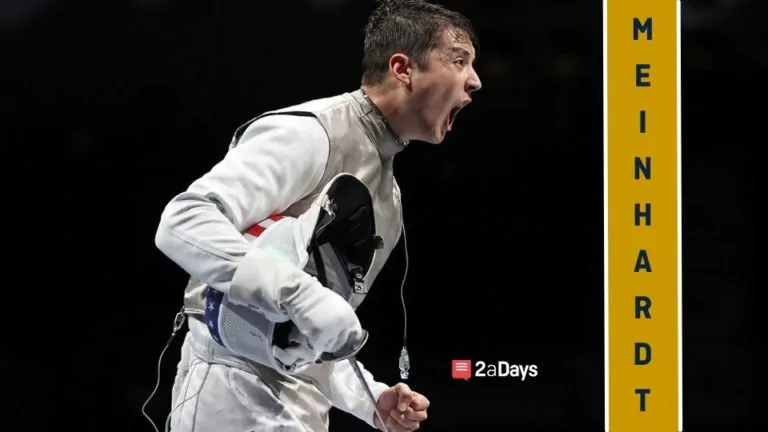Abram Gregory is a volunteer college fencing coach at Vassar College. Gregory was a student-athlete at Vassar before beginning a coaching career at Vassar. As a college fencer, Gregory won the individual epee title in the NEIFC Championships before graduating in 2021. Gregory has also coached at the St. Louis Fencing Club and Washington University Fencing Club. Now Gregory is back at Vassar and full of knowledge. Here is 18 pieces of advice for aspiring college fencers from Coach Abram Gregory:
1. What are some of the most important qualities you look for in a college fencing recruit?
Coachability, willingness to learn new systems and methods, time management, and communication skills.
2. What is the best way for a recruit to get on your radar?
Maintain a social media presence that indicates a passion for fencing and interest in networking with the greater USA Fencing community, celebrate development in the sport and in the weight room, and indicate well-roundedness so as to prevent burnout mid-season.
3. When/how should an athlete contact you?
Mid-fencing season of their junior year via email.
4. What are your expectations for incoming players in the classroom, in the weight room, during matches, etc.?
Many fencers aren't accustomed to weight training when they enter college, so my expectation is they take a leap of faith and commit to it, for it will make them a better athlete and a more disciplined person. Athletics departments hire professional strength and conditioning coaches for a reason. In fencing, I expect that my fencers don't need all the answers all the time, but refrain from bull-headed ignorance and embrace a curious learning process coupled with work ethic.
5. What is the top advice you can offer a college fencing recruit?
Be candid amount your goals as a student-athlete and your ideal training environment. Coaches can determine whether you'd be a good fit for their program quickly, so honesty is the best policy.
6. What are the main dos and don'ts for a recruit's highlight tape?
5-touch bouts are much more important than 15-touch bouts in college fencing, so I prioritize highlight tapes that show success in pools (5-point bouts) over anything else. I also prioritize sportsmanship, so if I see an athlete who can't control their emotions whether winning or losing, that's a red flag to me.
7. When do you recommend recruits share their highlight reels with you?
Junior year throughout the season. Periodic updates are helpful so coaches can get a sense of a fencer's developmental trajectory across a longer season.
8. Can you tell us the importance of highlight reels vs seeing an athlete in person at events such as showcases and camps?
I don't have a strong preference for film or in-person for competing, but I do for training videos. Curated lesson videos are going to be polished and refrain from showing how fencers deal with struggle. Seeing their realistic process in a camp is invaluable.
9. What do you look for when viewing the highlight tapes?
5-touch bout management, clock management, effective communication with coaches and/or teammates, tactical development in a short span (rather than just forcing points), control of footwork, tip control, and a variety of actions.
10. What can a player expect when they enter college?
The workload is going to increase substantially, and if a student-athlete is covering all their bases, they'll have less time in college than they did in high school. That's harrowing at first. I suggest finding support groups, whether in or out of sports, of students with similar workloads and passions to sympathize and build with. On a devoted team, one can expect to train 4-5 days a week in addition to competitions.
11. If an athlete is looking to become a coach, what advice would you give them?
Many collegiate fencing programs are on campuses with fencing clubs nearby. So I would look for opportunities to work at those clubs. Many coaches will gladly take on assistants, even if it means exchanging teaching for volunteer work. Embedding oneself in a club or high school setting can be an excellent beginning to a coaching career in fencing.
12. How would you describe your coaching style?
My coaching style is creative, holistic, situational, and tactically oriented. I find development across seasons and improvements in the entirety of my athletes' lives fulfilling as they train. My favorite memory of collegiate coaching is coaching a St. Louis University fencer to his first national rating after several weeks of training with me. He'd worked with other coaches for several seasons to no avail, and something about our method sparked sharp gains in a short time.
13. What does it take to be successful on your team?
Mindful practice attendance, willingness to try new methods, and curiosity are the ways to succeed in training with me. The most important thing for me is that one's stated goals match up with the work they're willing to put in. If there's an incongruence between the two, we won't work well together.
14. Can you share stories of athletes that have gone on to do great things after college?
One of the fencers I trained at St. Louis University balanced fencing with school, being an officer in the club, and working off campus. Under all this duress he succeeded as a fencer, and after I announced my departure from St. Louis, I trained him to coach. He's now my successor at St. Louis Fencing Club, where he works with children, teens, and adults to grow the fencing community in St. Louis and bolster his own knowledge of the sport. I'm proud of him.
15. What advice would you give an athlete to help them do well both on the team and in class?
Take advantage of Vassar's writing and quantitative centers in the library. Not only do they employ trained staff to help with these skills, but the library itself is amazing.
16. What are 3 words your players would use to describe you?”
Passionate, tireless, and crafty.
17. What platform(s) do you use to discover or recruit athletes?
Fencingtimelive.com, askFRED.net, and social media.
18. Is there anything you'd like to share that we have not discussed yet?
15-touch bout wins are flashy, but really work on those 5s.
Image Credit: Vassar Athletics
* Originally published on July 31, 2023, by Bella Nevin
